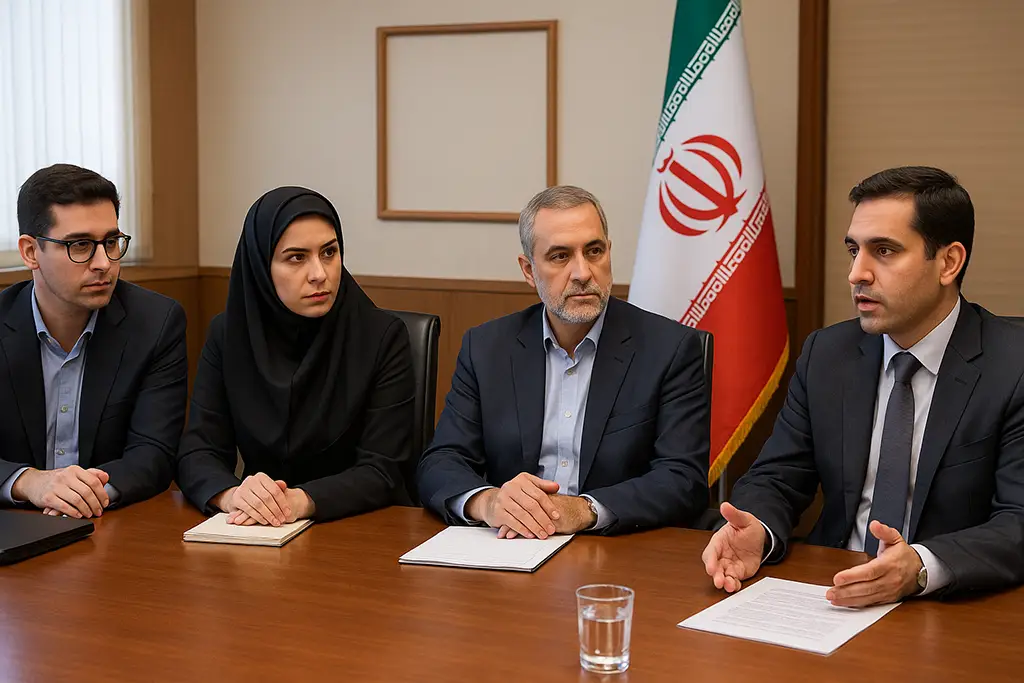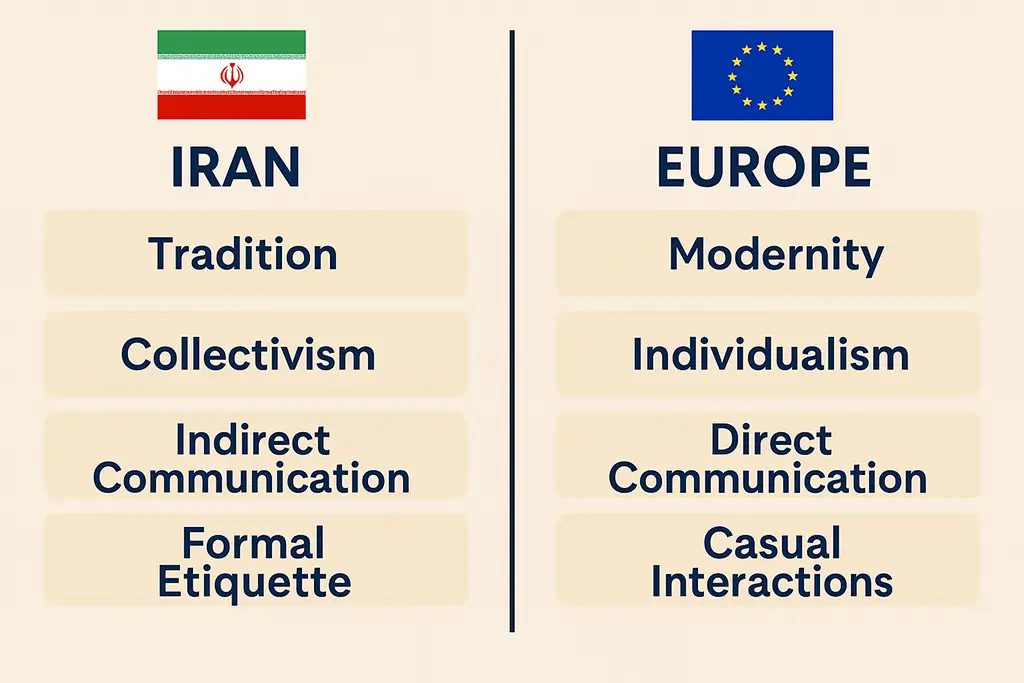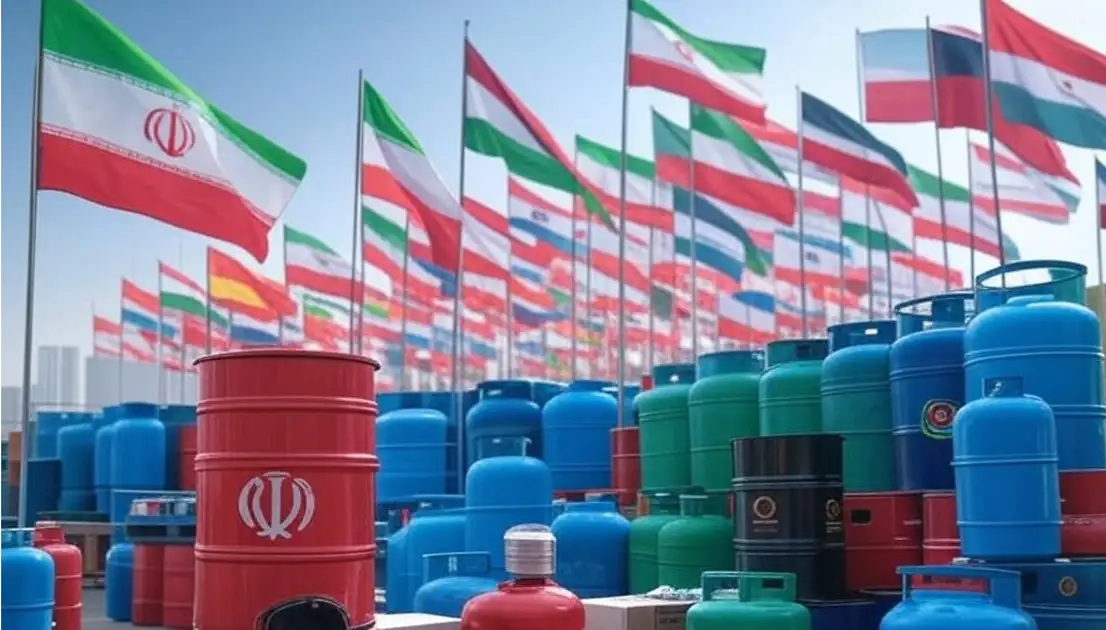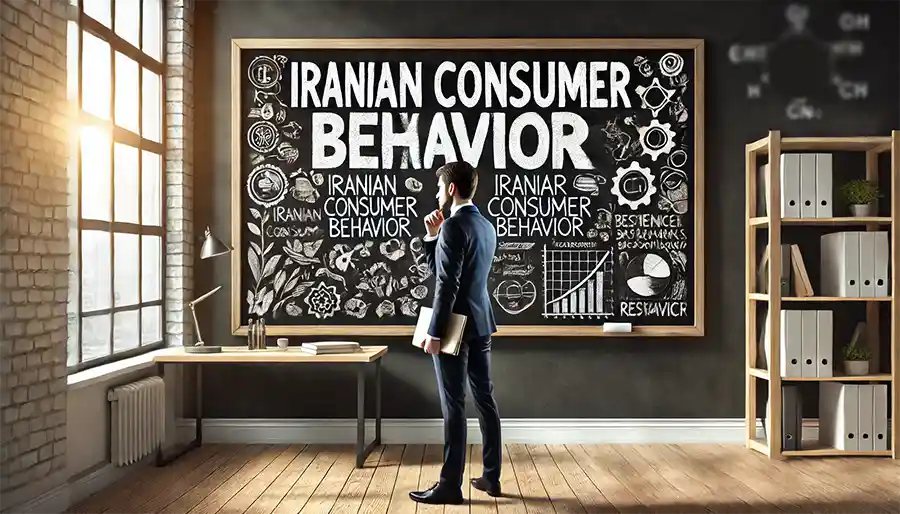Iran Business Culture and Traditions: How to Succeed in Iran
Key Insights into Iran Business Culture and Traditions

In a world where cross-border business is increasingly common, understanding Iran business culture and traditions is not just advantageous — it is essential. Iran’s commercial environment is shaped by centuries of history, religious values, and unique social norms. Without a firm grasp of this cultural landscape, even the best strategic plan may falter.
Why I can help you about Iran business culture?
As an Iranian professional with academic expertise in business studies and years of first-hand experience in Iran’s corporate and entrepreneurial sectors, I have written this guide to provide foreign investors and entrepreneurs with accurate, practical insights. The observations and recommendations shared here reflect the realities of doing business in Iran — from the negotiation table to daily management practices — and are intended to help international professionals navigate the market more effectively.
Some of the key dynamics you will explore in this article include:
-
The interplay between traditional Persian values and modern business practices
-
How social relationships and trust precede formal contracts in Iranian dealings
-
The subtleties of communication, hierarchy, and negotiation styles
-
Practical strategies to navigate challenges and build lasting partnerships in Iran
By combining cultural depth with real-world experience, this guide serves as a reliable and insightful roadmap for anyone aiming to succeed in Iran by understanding its business culture and traditions.
Historical Roots of Iran Business Culture
Iran’s modern business culture did not emerge overnight — it is deeply rooted in centuries of trade, political shifts, and societal evolution. To truly grasp Iran business culture, one must look back at key historical turning points and longstanding traditions.
Ancient and Pre-Modern Trade Traditions
-
Iran’s position along the Silk Road made it a key hub for East–West trade, embedding commercial exchange, hospitality, and mediation into social norms.
-
The merchant class known as بازاری (Bazāri) has historically held both economic and social influence in Iranian cities. ( See Wikipedia)
-
Guilds, bazaars, and local trade networks cultivated an ethic of reciprocity (mutual obligation) and trust-based relationships.

Influence of Islam and Persian Values
-
After the Arab conquest and the spread of Islam, Islamic principles such as amanah (trustworthiness) and adl (justice) became integrated into commercial ethics.
-
Persian culture emphasizes hefz-e āberu (حفظ آبرو / hefz-e âberu) — the preservation of personal dignity and social respect — and ʿizzat (عزت / ezzat) meaning honor. These values deeply influence negotiation styles, indirect communication, and the way Iranians manage disagreement or criticism in professional settings.
Modern Political Economy & Institutional Changes
-
The 20th century witnessed dramatic shifts: foreign concessions (e.g., the Anglo-Persian Oil Company) and nationalization campaigns deeply affected Iran’s institutional environment. (Taylor & Francis)
-
The 1979 Revolution and subsequent structural changes created stronger state presence in the economy, but private entrepreneurship continued under new norms.
-
Contemporary reforms aim to shift Iran toward a knowledge-based economy and reduce oil dependency — influencing how modern business culture is adapting.
Core Values and Social Norms in Iran Business Culture
At the heart of Iran business culture lies a set of deeply rooted social and moral principles that guide every professional interaction. These values are not written in formal policy but are felt and practiced through behavior, language, and attitude.
Respect and Hierarchy
Iranian workplaces value respect for hierarchy and experience. Decisions often flow from the top down, and seniority carries moral authority. Addressing superiors politely, using appropriate titles, and allowing elders to speak first are subtle but essential gestures of respect.
Trust and Personal Relationships
Building etebār (اعتبار / ettebār) — meaning credibility and reputation — is the cornerstone of success in Iran. Business agreements are rarely based solely on written contracts; instead, they rely on long-term personal trust. Many Iranian professionals prefer to engage in small talk and personal conversations before discussing financial terms, as relationships often precede transactions.
Dignity and Honor
Two cultural pillars — hefz-e āberu (حفظ آبرو / hefz-e âberu) meaning preservation of dignity, and ʿizzat (عزت / ezzat) meaning honor — shape interpersonal dynamics in business. Criticism or refusal should be expressed diplomatically to ensure that no one loses face. Maintaining mutual dignity fosters smoother negotiations and lasting respect.
Hospitality and Generosity
Hospitality is a moral duty in Iranian culture. Offering tea, coffee, or sweets to guests — even during business meetings — is an expression of goodwill.
Communication Style and Etiquette
Understanding how people communicate within Iran business culture is vital to avoiding misunderstandings and building effective partnerships. The Iranian style blends warmth, indirectness, and emotional intelligence.
Indirect and Contextual Communication
Iranians often express disagreement or negative feedback indirectly to preserve harmony. Instead of saying “no” directly, they may use polite phrases such as “we will think about it” or “it might be difficult.”
Emotional Tone and Body Language
Communication is typically expressive, accompanied by rich gestures and facial expressions. A warm tone and attentive posture convey sincerity. Prolonged eye contact may indicate engagement, while excessive directness can be seen as aggressive or disrespectful.
Greetings and Introductions
Formal greetings often include a handshake accompanied by the phrase “salam” (سلام / sælɒːm) and sometimes a gentle nod. Among close acquaintances, a light touch on the arm or shoulder is common. When addressing others, use professional titles such as Doctor (دکتر / doktor) or Engineer (مهندس / mohandes) to show respect.
Written and Digital Communication
Emails and written correspondence in Iran tend to be formal and polite. Starting with respectful greetings like “Dear Mr.” or “Dear Ms.” is expected. Even in digital communications such as messaging apps, expressions of gratitude and courtesy remain essential.
Negotiation Practices and Decision-Making
Negotiation is one of the most distinctive aspects of Iran business culture. It reflects a combination of patience, respect, and psychological insight rather than confrontation or rigid logic.
Relationship Before Contract
In Iran, successful negotiation begins long before the formal meeting. Building etebār (اعتبار / ettebār) — credibility and mutual confidence — is the first step. Iranians prefer to do business with those they know personally or who are introduced by trusted intermediaries. Without this foundation of familiarity, even a financially sound proposal may be declined.

Indirect Communication and Diplomacy
Negotiations in Iran often follow an indirect pattern. Rather than rejecting an offer openly, a counterpart might say, “We will consider it,” as part of taʿārof (تعارف / taʔârof)
Patience and Timing
Decision-making in Iran can be gradual. Rather than rushing into a deal, Iranians often prefer extended discussions that reinforce trust and allow all sides to show sincerity. Demonstrating patience is seen as a sign of strength and wisdom, not weakness.
Collective and Consultative Decisions
In many organizations, especially family-owned or traditional firms, decisions are made collectively after consultation with elders or key stakeholders. Even when the CEO has authority, consensus remains culturally valued. Understanding this dynamic helps foreign partners avoid frustration with perceived delays.
Role of Hierarchy and Authority
Hierarchy is deeply woven into Iran business culture, reflecting both historical structures and social traditions.
Respect for Seniority
Age and experience command respect. Senior managers are often addressed by their professional title — Ostād (استاد / ostâd) meaning “master,” or Doctor (دکتر / doktor) — even outside formal contexts. Deference to authority is not seen as submission but as acknowledgment of wisdom and rank.
Centralized Decision-Making
While teamwork is valued, final decisions typically rest with top executives or business owners. Subordinates rarely challenge leadership publicly; instead, they share alternative views in private discussions to maintain ʿizzat (عزت / ezzat) — mutual respect and dignity.
Leadership Style
Leaders in Iranian companies are expected to combine authority with mehrbāni (مهربانی / mehrbâni) — kindness. A leader who shows empathy, fairness, and generosity is admired and seen as a moral role model. Authoritarian behavior without personal warmth, however, may damage loyalty and trust.
Gender and Generational Shifts
In modern urban settings, a new generation of professionals is reshaping hierarchy. Younger Iranians educated abroad or in international universities value meritocracy and open dialogue. This evolving culture coexists with traditional respect for elders, producing a hybrid structure of authority.
Building Trust and Relationships
Trust is the emotional and ethical cornerstone of Iran business culture. Without it, formal contracts carry little weight; with it, even informal agreements can last for decades.
📊 Table 1. Behavioral Drivers of Success in Iran Business Culture
| Behavioral Factor | Cultural Meaning (توضیح فرهنگی) | Why It Matters in Business |
|---|---|---|
| Patience (صبوری / sabouri) | Reflects emotional control and respect for process | Demonstrates maturity and reliability during long negotiations |
| Courtesy (ادب / adab) | Rooted in Persian social etiquette and taʿārof (تعارف) | Builds comfort and prevents misunderstandings in meetings |
| Reliability (قابلیت اعتماد / ghābel-e etemād) | Keeping promises and being consistent | Strengthens etebār (اعتبار) — personal credibility |
| Generosity (سخاوت / sakhāvat) | Expressed through hospitality and helpfulness | Creates delgarmi (دلگرمی) — emotional connection |
| Discretion (محافظهکاری / mohāfezekāri) | Avoiding public criticism or confrontation | Preserves hefz-e āberu (حفظ آبرو) and team harmony |
| Formality (رسمیت / rasmiyat) | Using proper titles and respectful tone | Signals professionalism and respect for hierarchy |
| Flexibility (انعطاف / enʿetāf) | Adapting to dynamic market and cultural nuances | Builds resilience and helps maintain long-term cooperation |
-
The Concept of “Delgarmi” (دلگرمی / delgarmi)
Delgarmi literally means “warmth of heart.” It represents emotional reassurance and mutual goodwill in business relationships. Iranians seek partners who show sincerity, humility, and reliability — not just profit orientation. Once delgarmi is achieved, collaboration flows naturally.
Personal Bonds Beyond Business
In Iran, professional relationships often extend into personal life. Inviting a business partner to lunch or a family gathering strengthens the human connection and builds etebār (اعتبار / ettebār). This personal approach reinforces loyalty far beyond the legal contract.
Consistency and Reliability
Being consistent in communication, honoring promises, and showing long-term commitment are vital for earning etemād (اعتماد / etemâd) — trust. Western-style transactional behavior may be perceived as opportunistic if not balanced with personal engagement and sincerity.
Reciprocity and Respect
Iranian business relationships operate on reciprocity: giving and receiving favors or courtesies over time. Small gestures — remembering an anniversary, sending seasonal greetings, or showing empathy during hardships — strengthen the emotional bridge that defines genuine partnership.
Meetings, Timing, and Formalities
Business meetings in Iran business culture are formal yet warm, blending professionalism with personal courtesy. The setting, timing, and manner of interaction reflect cultural values of respect and hospitality.
Scheduling and Punctuality
While punctuality is appreciated, meetings may not always start on time due to traffic, prior commitments, or flexible scheduling norms. It is wise to arrive on time but to remain patient if others are late — flexibility is seen as a sign of emotional intelligence rather than weakness.
Introductions and Seating
Meetings usually begin with polite greetings and small talk before addressing the main topic. This initial phase helps build delgarmi (دلگرمی / delgarmi) — emotional warmth — and etebār (اعتبار / ettebār) — credibility. The most senior person generally leads the discussion, and seating arrangements often reflect hierarchy, with senior figures positioned at the head of the table.
Tone and Formality
Formality in language and demeanor is crucial. Avoid using first names unless invited, and always address people with their titles such as Aghā (آقا / âqâ) for men and Khānom (خانم / khânom) for women. Maintaining polite speech, showing attentiveness, and accepting offered tea or refreshments convey respect and cultural understanding.
Follow-Up and Decision Process
After the meeting, decisions may take time. It is common to have several follow-ups before final approval. Sending a courteous thank-you message afterward helps reinforce etemād (اعتماد / etemâd) — trust — and keeps the relationship active.
Business Dress Code and Professional Conduct
In Iran business culture, appearance communicates professionalism, respect, and social awareness. Dressing appropriately signals both cultural sensitivity and credibility.
Men’s Attire
Men typically wear suits or formal jackets in conservative colors such as navy, gray, or black. Ties are acceptable but not mandatory in all industries. Clean shoes and well-pressed clothing are considered essential markers of self-respect and reliability.
Women’s Attire
Women in business settings generally follow modest dress codes that align with cultural expectations. This usually includes a long-sleeved blouse or tunic, dark trousers, and a manteau (مانتو / manteau) — a knee-length coat — paired with a rusari (روسری / rusari) or scarf covering part of the hair. Professional style, elegance, and neatness are appreciated more than luxury.
Body Language and Behavior
Polite restraint in gestures and tone is valued. Avoid overly casual behavior, loud laughter, or excessive physical contact. Showing calm confidence and empathy aligns with hefz-e āberu (حفظ آبرو / hefz-e âberu) — maintaining dignity — a core concept in Iranian professionalism.
Gift Giving and Courtesy
Small gifts, especially items symbolic of one’s home country or company, can be appreciated after trust is established. Gifts should be presented modestly and often refused once or twice due to taʿārof (تعارف / taʔârof)

Gender Dynamics and Modern Shifts
The evolving role of gender in Iran business culture reflects the intersection of tradition and modernity. While Iranian society remains rooted in cultural modesty, the participation of women in business and leadership continues to grow.
Women in the Workplace
Today, Iranian women are increasingly visible in management, entrepreneurship, and academia. Many hold degrees from top universities and lead successful enterprises. Professional respect is generally based on competence and behavior rather than gender, especially in urban and international sectors.
Professional Interaction Between Genders
Interactions between men and women in business contexts are polite and formal. Handshakes between opposite genders are avoided unless the woman initiates it. Maintaining professional boundaries and mutual respect is key to demonstrating cultural awareness and avoiding discomfort.
Generational Perspectives
Younger Iranians — both men and women — show a more global mindset. Exposure to international education and digital platforms has fostered values such as gender equity, meritocracy, and collaboration. This shift is gradually reshaping Iran business culture, especially in start-ups, tech companies, and creative industries.
Balancing Tradition and Modern Values
Iran’s modern business environment blends traditional ethics like ʿizzat (عزت / ezzat) — honor — and taʿārof (تعارف / taʔârof) — politeness — with progressive ideals of diversity and innovation. Understanding this balance is crucial for foreign professionals seeking long-term partnerships in the Iranian market.
Regional and Industry-Specific Differences
Although Iran business culture shares a set of common values across the country, regional and sectoral nuances can influence business behavior and expectations.
Regional Diversity
Iran is a vast and culturally rich country with distinct regional characteristics.
-
In Tehran, the capital and economic hub, business tends to be fast-paced, formal, and internationally oriented.
-
In Isfahan and Shiraz, interactions may be more relationship-based and conservative, reflecting local traditions.
-
In Tabriz and the northwestern provinces, entrepreneurs are known for pragmatism and strong negotiation skills.
Understanding these regional subtleties helps foreign professionals adapt their tone and strategy to local preferences.
Industry-Specific Dynamics
Each sector has its own professional rhythm.
-
Energy and construction industries are typically hierarchical and male-dominated, with a strong emphasis on state relations and formal protocols.
-
Technology, media, and creative industries are far more relaxed, youth-driven, and open to innovation.
-
Healthcare, education, and tourism sectors emphasize empathy, reputation, and personal trust (etemād — اعتماد / etemâd).
Tailoring one’s approach to both the region and industry demonstrates cultural competence — a major asset in succeeding within the Iran business culture framework.
Challenges for Foreign Investors
Doing business in Iran offers many opportunities, but it also requires awareness of unique challenges that shape Iran business culture.
Regulatory Complexity
Iran’s legal and administrative systems can be complex, involving multiple layers of regulation. Patience and local legal consultation are essential for smooth operations. Many companies partner with local consultants or Bazāri (بازاری / bɑːzɒːriː) networks to navigate bureaucracy efficiently.
Cultural Misunderstandings
Foreign professionals sometimes misinterpret taʿārof (تعارف / taʔârof) — polite hesitation or courtesy — as indecision. Understanding that it reflects social grace, not avoidance, prevents unnecessary tension. Similarly, assuming Western-style directness will be appreciated can harm relationships.
Economic and Political Factors
Fluctuating exchange rates, sanctions, and political uncertainty may complicate planning and financial transactions. Resilience and adaptability are key traits for long-term success in Iran’s dynamic market.
Language and Communication Barriers
Although many Iranian professionals speak English, fluency levels vary. Having bilingual staff or translators helps ensure clarity and demonstrates respect for local culture. Learning basic Persian greetings such as Salam (سلام / sælɒːm) and Merci (مرسی / mersi) can make a surprisingly positive impression.
Practical Tips for Success in the Iranian Market
Success in Iran depends less on aggressive marketing and more on authentic relationship-building and cultural fluency.
Below are practical recommendations grounded in real experience and cultural understanding.
1. Prioritize Relationships Over Transactions
Build genuine delgarmi (دلگرمی / delgarmi) — emotional warmth — before expecting results. Take time to share meals, conversations, and personal stories.
2. Show Respect for Hierarchy and Titles
Address people formally, use their professional designations, and acknowledge senior members in meetings first. This reflects hefz-e āberu (حفظ آبرو / hefz-e âberu) — preservation of dignity.
3. Be Patient and Flexible in Negotiations
Understand that decision-making may take time. Polite persistence and consistency are more effective than pressure.
4. Adapt Your Communication Style
Use respectful, indirect phrasing when declining or disagreeing. Show empathy and humility; these are seen as strengths in Iran business culture.
5. Work with Trusted Local Partners
Having a reliable local intermediary or consultant can bridge cultural and legal gaps, accelerate networking, and protect your interests.
6. Demonstrate Long-Term Commitment
Iranians value loyalty and sincerity. Focus on sustainable collaboration, not short-term gains. Following through on promises builds etemād (اعتماد / etemâd) — the foundation of lasting partnerships.

Conclusion
Understanding Iran business culture is not merely an academic exercise; it is the key to unlocking one of the Middle East’s most complex yet rewarding markets. The success of any foreign venture in Iran depends on mastering the subtle art of balancing tradition and modernity — showing respect, patience, and emotional intelligence while pursuing professional goals.
The Iranian marketplace operates on trust, relationships, and cultural awareness. Those who approach it with genuine curiosity, open-mindedness, and appreciation for Persian values such as ʿizzat (عزت / ezzat) — honor — and etebār (اعتبار / ettebār) — reputation — will find not just business partners, but lasting friendships and mutual respect.
In short, to succeed in Iran is to understand that commerce here is not just about contracts — it is about connection, character, and culture.
Modern aspects of Iran business culture are closely connected to changing consumer behavior — especially among younger generations who combine traditional values with modern lifestyles. This shift can be clearly seen in the country’s growing demand for lifestyle products such as energy drinks. To learn more about this evolving market, read our detailed analysis on the Iranian energy drink consumers market.
Frequently Asked Questions (FAQ) about Iran Business Culture
1. What is the most important value in Iran business culture?
The most important value in Iran business culture is etemād (اعتماد) — trust. Building personal credibility and maintaining long-term relationships are essential for any successful partnership in Iran.
2. How do Iranians usually communicate in business settings?
Iranians prefer indirect and polite communication. They avoid direct confrontation and use soft, respectful language to preserve hefz-e āberu (حفظ آبرو) — personal dignity and mutual respect.
3. What does “taʿārof” mean in Iranian business culture?
Taʿārof (تعارف) is a Persian social code of courtesy that emphasizes politeness, humility, and respect. In business, it appears when people offer or decline things out of politeness rather than literal intent.
4. How are business meetings usually conducted in Iran?
Business meetings in Iran are formal yet friendly. They often begin with small talk and hospitality, followed by gradual discussion of key issues. Decisions may take time, as relationship-building comes before signing contracts.
5. How should foreigners dress for business in Iran?
Men should wear suits or jackets in conservative colors, while women should wear a manteau (مانتو) with a rusari (روسری) or scarf. Neatness, modesty, and professionalism matter more than luxury.
6. How are decisions typically made in Iranian companies?
Decisions in Iranian businesses are often consultative and hierarchical. Senior leaders or family elders usually make final calls after discussions. Showing patience and respect for hierarchy builds etebār (اعتبار) — professional credibility.
7. What advice helps foreigners succeed in the Iranian market?
To succeed, focus on relationships over transactions. Be patient, respectful, and culturally aware. Demonstrating long-term commitment and honoring promises are the keys to building sustainable trust in Iran business culture.
Table & appendices
Table 2. Key Aspects of Iran Business Culture at a Glance
| Aspect | Cultural Feature | Practical Implication in Business |
|---|---|---|
| Hierarchy | Respect for seniority and authority | Always address senior figures first; use titles like Doctor or Engineer. |
| Communication | Indirect and polite | Avoid blunt refusals; use soft language to maintain hefz-e āberu (حفظ آبرو). |
| Trust | Personal credibility etebār (اعتبار) | Build relationships before signing contracts; long-term loyalty matters. |
| Negotiation | Patient and relationship-based | Expect extended discussions; avoid rushing decisions. |
| Hospitality | Offering tea, sweets, and courtesy | Accepting hospitality respectfully strengthens delgarmi (دلگرمی). |
| Decision-Making | Collective and consultative | Major decisions often require family or senior input. |
| Dress Code | Conservative yet elegant | Men: suits in neutral colors. Women: manteau and rusari. |
| Gender Dynamics | Professional respect regardless of gender | Interactions are formal; handshake only if initiated by woman. |
| Regional Variation | Diverse styles from Tehran to Tabriz | Adapt tone and expectations to regional norms. |
| Key Value | ʿizzat (عزت) — honor and mutual respect | Maintaining dignity ensures trust and long-term success. |








